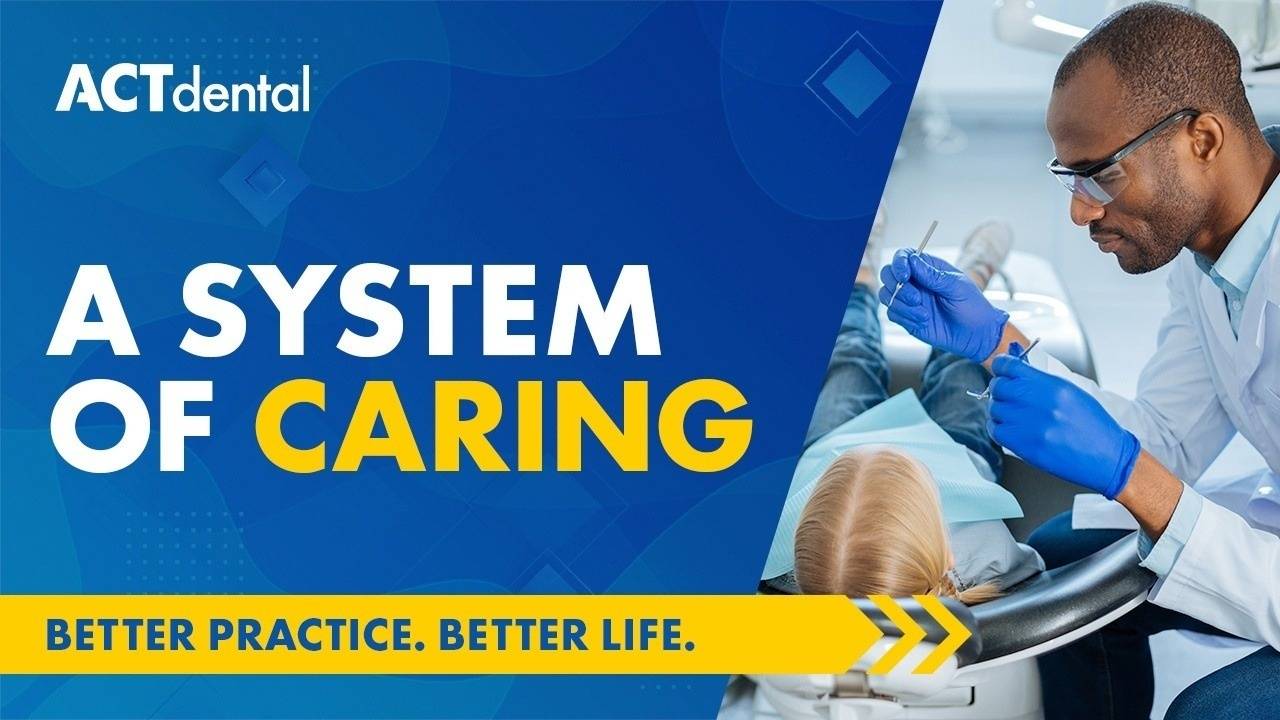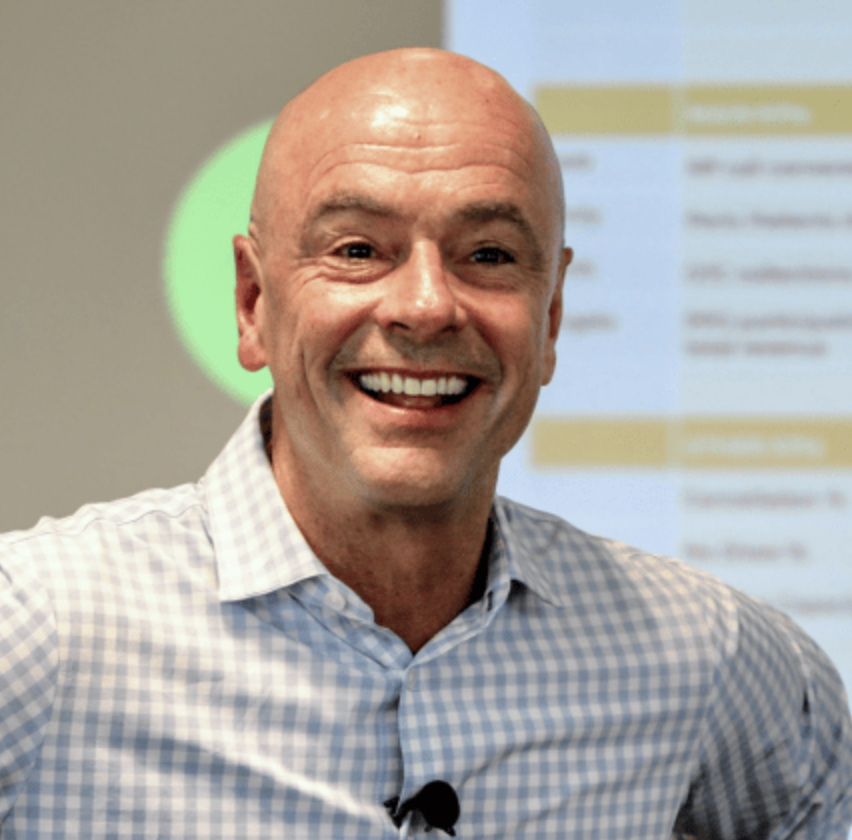Tell me if this sounds like you. You’ve got a busy practice with a good team, but you still feel overworked and overwhelmed. Why? Instead of relying on systems to streamline your practice, you depend on your people too much. And people make mistakes. People let things fall through the cracks, and as a result, you don’t retain patients and your practice suffers. You can’t keep reacting—you need to be proactive. You need systems in place to guide the decisions your team makes, especially when it comes to getting your patients back into the office.
As a dental coach, I understand that one of the most vital areas in a practice is patient communication. As Kirk Behrendt will tell you, one of my favorite phrases is “Language matters,” because the words we choose and the way we use them play such a critical role in the way our patients respond to us. In my experience, demonstrating to the patient that you care is the most effective way to get them to return—it’s all about forming a relationship. As Maya Angelou once said, ” People will forget what you said. People will forget what you did, but people will never forget how you made them feel.”
The Value of a Relationship
Too often I see practices treat outgoing calls as a chore—something that’s expected of them and approached with an air of dismissive reluctance. But this is your chance to differentiate yourself from your peers. This is your chance to build a relationship with your patients and let them know that you value and understand them. It can be as simple as telling them that you and the doctor were thinking of them and would like to see them back. I recommend including an RFR, or Reason For Return, in your patients’ files; just a few personal notes about them that you can have on hand when making a call. It tells the patient that you know who they are as a person rather than a patient.
I saw this in action every day while riding home from work with my father from his practice; he made follow-up calls to every patient he had that day just to make sure they were doing well and to answer any questions. They weren’t lengthy calls, but the gratitude in their voices was evident. Every action you take screams either “I care,” or “I don’t care.” How do you choose to present yourself?
Bring Them Back
The goal in building these patient relationships is to get them to come back for future treatment. If you look at your patient reports, it’s likely you will see that the number of active patients who are currently unscheduled is astronomical. As Kirk says, “Data doesn’t lie,” so it’s important to realize that each unscheduled patient represents a loss of income. Instead of spending more money to reach new patients, work on scheduling the ones you already have.
No Surprises
Systems are meant to make your practice run more smoothly and to reduce conflict. One of Kirk’s favorite phrases is “Expectations Minus Reality Equals Conflict,” meaning that conflict only arises when expectations and reality don’t meet. When you tell a patient that you will follow up with them at a specific time and then don’t, you are creating conflict and demonstrating that you don’t value the patient. Using scheduling software is such an important method of reducing conflict and making sure that nothing falls through the cracks—scheduling is the secret to a great practice. Having a schedule allows you to set up a system of when to call patients with reminders, save the dates, and follow-ups. This consistency in reaching out demonstrates to the patient that their health is important to you.
It may seem like extra work on top of an already-full plate, but when it comes down to it, are you too busy to be more productive, profitable, and to further build your practice?
What steps can you take today to learn how to create and implement effective systems in your practice? In the Mastering Verbal Skills series, Kirk Behrendt and I discuss all aspects of what it takes to be an effective communicator, and how you can use those skills to streamline and improve your patient interactions. Put any one of them into use, and your life will be better. To gain access to ACT Dental’s team of proven coaches, reach out today. Our experience is at your disposal, and we will help you develop and perfect the systems you need to create a Better Practice and a Better Life!
About the Author: Jenni Poulos is a lead practice coach at ACT Dental.
Kirk Behrendt
Kirk Behrendt is a renowned consultant and speaker in the dental industry, known for his expertise in helping dentists create better practices and better lives. With over 30 years of experience in the field, Kirk has dedicated his professional life to optimizing the best systems and practices in dentistry. Kirk has been a featured speaker at every major dental meeting in the United States. His company, ACT Dental, has consistently been ranked as one of the top dental consultants in Dentistry Today's annual rankings for the past 10 years. In addition, ACT Dental was named one of the fastest-growing companies in the United States by Inc Magazine, appearing on their Inc 5000 list. Kirk's motivational skills are widely recognized in the dental industry. Dr. Peter Dawson of The Dawson Academy has referred to Kirk as "THE best motivator I have ever heard." Kirk has also assembled a trusted team of advisor experts who work with dentists to customize individual solutions that meet their unique needs. When he's not motivating dentists and their teams, Kirk enjoys coaching his children's sports teams and spending time with his amazing wife, Sarah, and their four children, Kinzie, Lily, Zoe, and Bo.
RECENT POSTS
One Case Doesn't Define Your Practice!
February 16, 2026
Ask the Right Questions to Hire the Right People
February 13, 2026
Bring Back Common Sense
February 09, 2026
Data Snapshot: Treatment Dollar Amount Acceptance Percentage
February 06, 2026
The Sweet-Spicy Formula For Confident, Kind Collections
February 02, 2026
Reveal Your Practice’s Hidden Profits
January 30, 2026
1000: Metric Mondays: Supplies Percentage - Ariel Siegel
January 26, 2026
5 Simple Ways To Build Trust Today
January 26, 2026
Data Snapshot: Patient Acceptance Percentage
January 23, 2026

